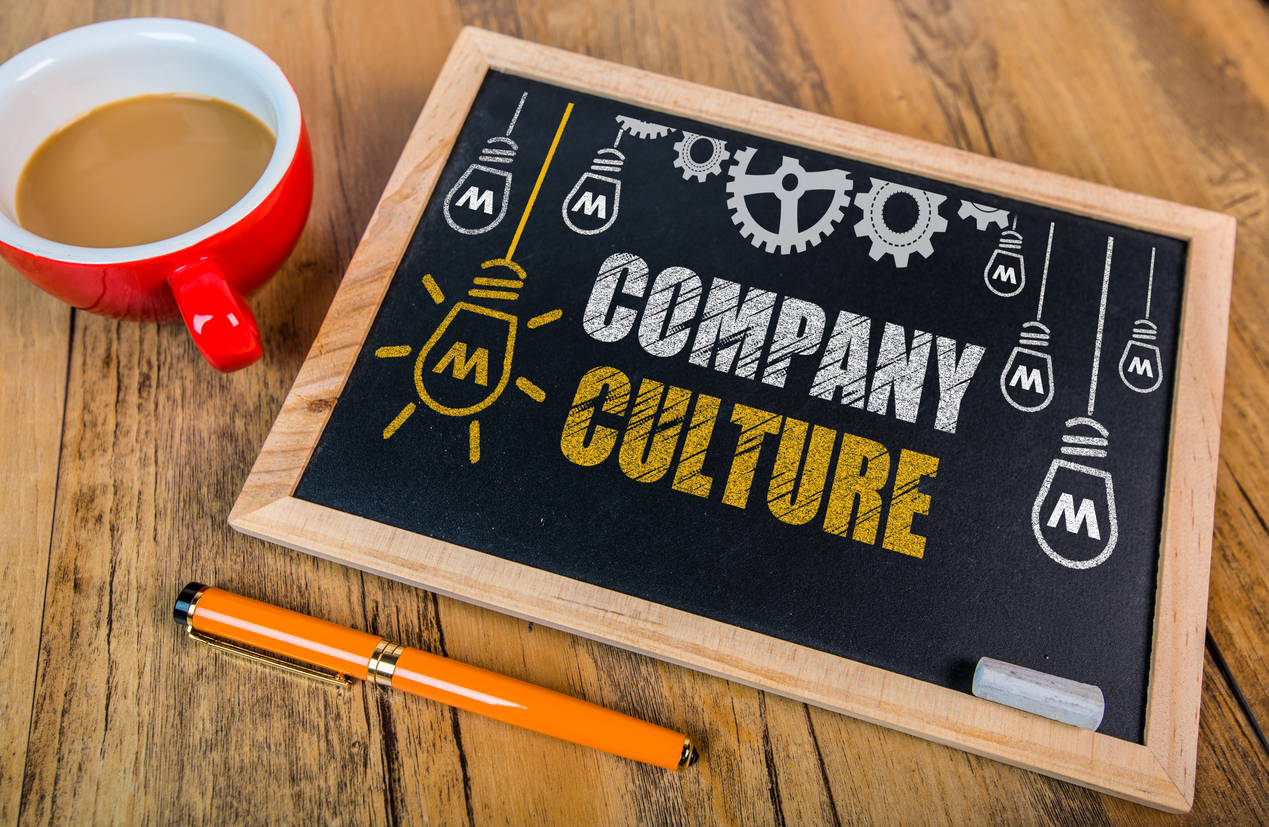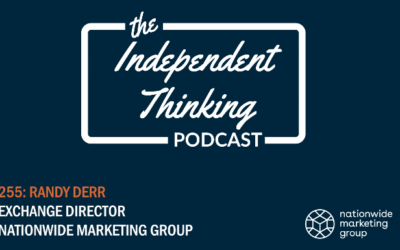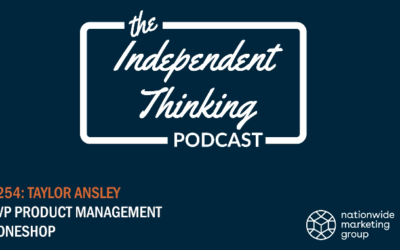It’d be easy for me to sit here and pontificate about all the great things that Nationwide Marketing Group does for the independent retail channel and our 5,000-plus Members. But the most striking thing I’ve seen and experienced in my two-plus years of waking up and going to work for this organization, is the incredible attention and intent put towards building a corporate culture that is grounded in trust, leadership and collaboration. Nationwide, as long as I’ve been here, has been a very active participant in FranklinCovey’s Speed of Trust program. While I can’t speak to the company culture pre this five-year-old venture, what I can say is that, in my entire professional life, I’ve never experienced the sense of purpose that I do as a part of this team. From what I can tell, everyone on the Nationwide team, no matter their department, role, where they physically work, etc., understands that everything we do is about enabling our Members to thrive on their own terms.
I can see how that sounds like a lot of “drinking the juice,” but that way of thinking and understanding is a testament to the effectiveness of the Speed of Trust program and Nationwide’s efforts in establishing a defined corporate culture. In fact, based on recent Organization Trust Index scores through FranklinCovey, Nationwide was recognized for having achieved “world class organizational trust,” meaning our scores are among the top 10% of all companies who participate in the program globally.
So, let’s relate this back to the independent retail channel. What benefits are there to building a purpose-driven culture within your store?
“Every organization needs to, in my opinion, establish an intentional culture,” Kris Kuester, director of people development and learning at Nationwide, said in a recent episode of the Independent Thinking Podcast. “All organizations, living organisms, whether it’s family, or workplace, a social club, whatever it may be — they’re going to have a culture. And one of the big disservices to that organization or the people that work there is to not intentionally define it. From a value-based, culture-building perspective, it sets up an opportunity for you to build out your strategy and vision as a company. When you approach it that way and think about it that way, is that something that you really want to leave to chance?”
Company culture is often something that’s looked at all too briefly, if at all. Yet, it’s something that truthfully requires as much attention as a marketing plan or merchandising strategy. And if you’re of the mindset that investing in your company’s culture has no return on investment, you couldn’t be more mistaken. Data from culture management firm Culture Partners has shown that businesses that invest in a culture strategy have 63% more successful product launches and their employees are 90% more likely to recommend the organization as a great place to work.
But that’s really just the tip of the iceberg.
Internally, a strong company culture can set your business up for success even before a single customer walks through your doors. To Kris’s point, being intentional about the culture you establish allows you to define your corporate strategy. And it can create clarity for your team as to what that strategy is, ensuring your entire organization is aligned and working toward a common goal or the organization-wide results you aspire to.
In addition, a strong and positive corporate culture can result in increased employee engagement and buy-in with your business. When employees understand how their work corresponds to the company’s overall goals, they have a greater sense of purpose.
“Most people don’t engage in culture because they just don’t know what to do,” Kuester said. “Your culture strategy is not just, ‘Oh, let’s make this a more enjoyable place to work.’ Great, but it’s also about making it a more productive place to work. A more enhanced, innovative place to work. And that list just goes on, and on, and on. So yeah, does culture make the workplace more enjoyable? Absolutely it does. But does it make it more efficient, a more effective, and stronger work environment? Yeah, absolutely.”
Those benefits then start to expand beyond the walls of your business and out into the community that you serve. When a retail business establishes a positive culture that exudes trust and transparency, customers will begin to sense that and, in turn, view your business as a more desirable destination for their next big purchase. And therein lies the return on investment that you’ve made in establishing a positive, trustworthy culture.
“When trust is up, speed goes up and cost goes down. And when trust is low, speed goes down and cost goes up,” said Kuester. “Consumers are constantly trying to figure out, ‘Do I, or can I trust you, Mr. Retailer?’ Really, we’re talking about everything your parents already taught you about character and values — but we’re reminding you of those simple life skills and implementing them in a more commonsensical way. A positive culture is what we want at the end of the day. We don’t want chaos. And so, programs like Speed of Trust give us that framework to begin to work on that culture in the trust, leadership and collaboration arenas.”
At the end of the day, programs like Speed of Trust exist to provide the framework for a company to build out their culture strategy. They create order out of chaos and have the potential to transform you from a steady retail operation into a very successful one. So, when it comes to your company’s culture, why gamble? Make the investment and experience the impact for yourself.
Interested in learning more about corporate culture programs? Check out Kris Kuester’s “The People Principle” course in the Nationwide Learning Academy. Also, be sure to register to attend one of Kris’s NLA courses at PrimeTime in Phoenix, February 5-8.




